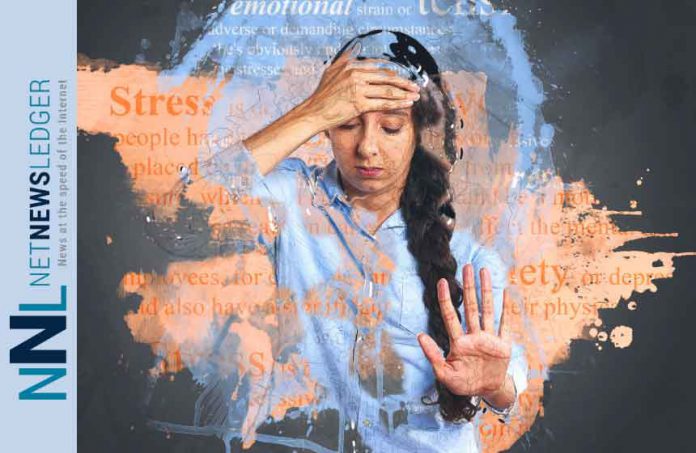THUNDER BAY – Living – The 13th annual #BellLetsTalk Day will be Wednesday, January 25, 2023.
Issues with mental health are a year long concern.
Intermittent explosive disorder involves repeated, sudden episodes of impulsive, aggressive, violent behavior or angry verbal outbursts in which you react grossly out of proportion to the situation. Road rage, domestic abuse, throwing or breaking objects, or other temper tantrums may be signs of intermittent explosive disorder.
Intermittent Explosive Disorder (IED) is a relatively common condition, affecting up to 16 million people in the United States alone. While the exact cause of IED is unknown, it has been linked to genetic, environmental, and psychological factors. There are various treatments available which can help to manage the symptoms of IED, including medications, psychotherapy, and lifestyle changes. It is also important to learn various coping strategies to help deal with the symptoms of IED and prevent outbursts. By understanding the causes, treatments, and coping strategies associated with IED, individuals can take steps to better manage the condition and lead a fulfilling life.
What is Intermittent Explosive Disorder (IED)?
Intermittent Explosive Disorder (IED) is a mental health condition characterized by sudden and recurrent episodes of impulsive, aggressive and violent behavior that is out of proportion to the situation. It is a relatively common condition, affecting up to 16 million people in the United States alone. While the exact cause of IED is unknown, it has been linked to genetic, environmental, and psychological factors. There are various treatments available which can help to manage the symptoms of IED, including medications, psychotherapy, and lifestyle changes. It is also important to learn various coping strategies to help deal with the symptoms of IED and prevent outbursts. By understanding the causes, treatments, and coping strategies associated with IED, individuals can take steps to better manage the condition and lead a fulfilling life.
Causes of IED
Although the exact cause of IED is unknown, it has been linked to genetic, environmental, and psychological factors. Some of the suspected causes of IED include: – Genetic factors: Research has found that a diagnosis of IED is more common in individuals who have a family member who suffers from the condition. This suggests that genetics may play a role in the development of IED. – Environmental factors: A traumatic experience such as childhood abuse or neglect may be at the root of IED. – Psychological factors: Chronic stress or mood disorders may contribute to the development of IED. – Certain medications: Certain drugs, such as steroids, lithium, or beta-blockers, have been linked to IED. – Nutritional deficiencies: Low levels of certain vitamins or minerals may contribute to the development of IED.
Treatments for IED
As with most mental health conditions, there is no “one-size-fits-all” approach to treatment. Treatment plans for IED should be individualized and tailored to each patient’s needs and circumstances. The most common forms of treatment for IED include: – Medication: Medications are commonly used in the treatment of IED. Antidepressants such as selective serotonin reuptake inhibitors (SSRIs) or serotonin norepinephrine reuptake inhibitors (SNRIs) have been shown to reduce impulsive and aggressive behavior in individuals with IED. – Psychotherapy: Several different types of psychotherapy may be helpful in treating IED, including cognitive behavioral therapy (CBT), dialectical behavior therapy (DBT), acceptance and commitment therapy (ACT), and mentalization-based therapy (MBT). – Lifestyle changes: Reducing stress, practicing mindfulness, and keeping a healthy diet and exercise routine can help to manage symptoms of IED.
Social and psychological impacts of IED
The social and psychological impacts of IED can be severe. In addition to feelings of guilt and shame, IED can result in loss of relationships and employment, and may even lead to imprisonment. While impulsive aggressive outbursts can occur in any individual, people with IED are likely to have many outbursts over the course of their lifetime. It is estimated that about 35% of the individuals with IED abuse alcohol or drugs. Moreover, those with IED are at an increased risk of suicide.
Coping strategies for IED
Individuals living with IED may benefit from learning various coping strategies to help deal with the symptoms of IED and prevent outbursts. Some useful coping strategies include: – Identify and manage triggers: Individuals with IED should keep track of the situations and factors that trigger impulsive and aggressive behavior and learn how to avoid them. – Practice stress management techniques: Individuals with IED may benefit from meditation, yoga, or other stress management techniques. – Try to stay connected socially: Because IED can lead to social isolation, individuals with IED should try to stay connected to others as much as possible. – Reach out for support: Individuals with IED may find it helpful to connect with others who live with the condition and who may understand their struggles and challenges.
Tips for managing IED
While there is no cure for IED, and treatments are often complex and long-term, individuals with IED can learn to manage the condition and lead fulfilling lives. By taking the time to understand the causes, symptoms, and treatments of IED, individuals can take better care of themselves and improve their quality of life.
Resources for individuals with IED
– The International Society for Intermittent Explosive Disorder (ISID) – A social support network for individuals with IED and their loved ones. – The Intermittent Explosive Disorder Association (IEDAA) – A nonprofit organization dedicated to informing and supporting individuals with IED and their families.
How to find help for IED
If you think that you or someone you know may suffer from IED, it is important to seek help. Because IED is often unrecognized, it is important to speak with a mental health professional who can properly diagnose and treat the condition.
Once diagnosed, individuals with IED can benefit from a combination of medication, psychotherapy, and lifestyle changes.
Treatment plans may also include social and psychological support, as well as self-help strategies such as journaling, meditation, and yoga.







